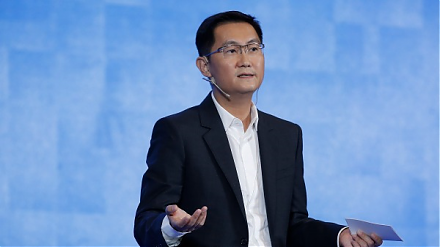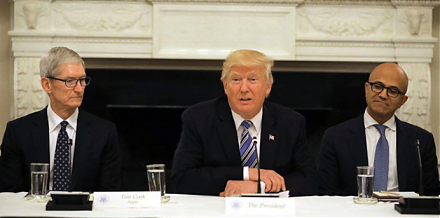

Home > Library > AYA analytic report on macroeconomic policy developments January 2025
Author Peter Prince
Our fintech finbuzz analytic report shines light on the current global macro-financial outlook. As of Winter-Spring 2025, this report delves into the homeland industrial policy stance worldwide. The current homeland industrial policy stance tends to tilt toward substantially improving the worldwide resilience of global supply chains for critical technological advances such as semiconductor microchips, 5G high-speed broadband telecom networks, and artificial intelligence (AI) applications in health care, education, defense, social safety, trade, finance, technology, and so forth. In support of significantly less wealth and income inequality, these macro trends help promote greater economic growth, employment, price stability, and robust macro-financial market valuation. The new world order of fair trade helps accomplish non-economic policy goals such as national security and technological dominance.
Description:
Our fintech finbuzz analytic report shines light on the current global macro-financial outlook. As of Winter-Spring 2025, this report delves into the homeland industrial policy stance worldwide. The current homeland industrial policy stance tends to tilt toward substantially improving the worldwide resilience of global supply chains for critical technological advances such as semiconductor microchips, 5G high-speed broadband telecom networks, and artificial intelligence (AI) applications in health care, education, defense, social safety, trade, finance, technology, and so forth. In support of significantly less wealth and income inequality, these macro trends help promote greater economic growth, employment, price stability, and robust macro-financial market valuation. The new world order of fair trade helps accomplish non-economic policy goals such as national security and technological dominance.
The new homeland industrial policy stance now tends to tilt toward reshoring more resilient global supply chains for critical technological advancements such as 5G high-speed broadband telecom networks, semiconductor microchips, and artificial intelligence (AI) applications in defense, health care, education, trade, finance, and cyber security. In support of less wealth and income inequality, these macro trends help promote greater high-quality economic growth, full employment, price stability, and robust macro-financial asset market valuation. In the meantime, many western governments face relatively bleak prospects for global peace, economic prosperity, and political stability.
A profound shift in the homeland industrial policy stance is now under way. Across the rich world, many governments offer generous state subsidies, tax rebates, and other cash and non-cash incentives to build some strategic sectors in green energy, electric transport, generative AI, high-speed mobile cloud telecommunication, and semiconductor microchip design and production. This current homeland industrial policy stance is probably the biggest policy shift worldwide in our lifetime.
In the rich and middle-income countries, many governments believe that this new homeland industrial policy stance holds great promise. When global supply chains become more resilient in the absence of extreme disruptions, supply-side inflation would be reasonably low and steady. The global society would become more equal. Workers would have clear economic incentives to favor green energy in support of climate change risk management goals. The current homeland economic science might even shift the world out of its recent productivity slump.
Globalization failed to produce the global peace, economic prosperity, and political harmony that its fervent proponents had expected in the 1990s. Despite its recent vital participation in world affairs through the WTO, WHO, and UN Security Council, China seems ever further from becoming a new democratic regime. China still has subpar human-rights records in Tibet and Xinjiang, and China continues to menace Taiwan through both diplomatic and military means. Russia’s invasion of Ukraine reveals geopolitical tensions and vulnerabilities in Easter Europe. Also, the current conflict between Israel and Iran, Hamas, and the Palestinians further deepens long prevalent geopolitical cleavages in the Middle East. In recent years, this furtive de-globalization redivides the world into the U.S. and its western allies vis-à-vis Russia, China, Iran, and North Korea. The history of great-power competition seems clear. Rising powers often choose to assert themselves through many military, diplomatic, economic, geopolitical, and technological ways and manners that incumbents tend to avoid by all means. This time may not be different, especially when history often repeats itself.
Overall, globalization had helped reduce extreme poverty for the poor in many low-income countries. Opening postwar global markets caused the fastest decrease in world poverty ever. Trade agreements often specified higher standards, conditions, and requirements in support of both workplace safety and environmental protection in poor countries. Under the current neoliberal world order, the average rate of fatal occupational injuries outside the rich world fell from well over 10 per 100,000 in the year 2000 to slightly above 3. Today, food is cheaper, and clothes are cheaper too. Through free trade networks and low tariffs worldwide, globalization reduces prices everywhere, boosts income per capita, and stops wars in some cases.
However, globalization did fail some people, especially blue-collar workers in the left-behind rural areas and regions of North America, Australia, Britain, and Europe. Wealth and income disparities have grown substantially by historical standards in these rich economies. Also, production growth has become weak and sluggish in the rich world. These fault lines exacerbate social issues from rural unemployment to a widespread lack of economic equality in health care, education, social security, trade, finance, and technology. In summary, the current homeland industrial policy seems to integrate domestic economic opportunities with foreign affairs. In addition to perverse incentives, carrots, and sticks, political misconceptions may lead states, cities, and companies to miss the multiple divergent policy goals.
In the current geopolitical world, it is quite reasonable for leaders, lawmakers, and many other politicians to focus on national security concerns. In practice, the vast majority of bilateral trade and investment relations between China and the U.S. are best left to private decisions. Yet, it would make much sense for the U.S. to restrict the bilateral trade and investment relations in some sensitive and strategic sectors, such as defense, finance, infrastructure, and technology. These restrictions would reduce the potential damage that China might do if the Chinese government turned hostile to the U.S. and its own western allies and trade partners. In pragmatic terms, American trade and investment restrictions should focus on some potential transfer of sensitive and strategic technological advancements in support of better national security and global peace and prosperity.
This legitimate policy goal should lead to narrow target investment restrictions on what genuinely constitutes dual-use technological advancements for both civilian and military applications. In practice, this approach produces a free-for-all version of both homeland industrial policy and trade protectionism. As a consequence, the critical global supply chains may become less resilient in response to some political concerns and considerations. The world may experience subpar economic growth in terms of total GDP, total factor productivity, and technical progress. To the extent that poor countries cannot match the fiscal firepower of rich countries, the current homeland industrial policy tilts in favor of the U.S. and western allies. This gradual development tends to recur at the expense of both middle-income and low-income countries. Away from global supply chains and free trade networks, these countries may grow more slowly. As a result, extreme poverty and economic inequality tend to persist in these countries over a longer time window. As the U.S. and its western allies attempt to decouple-and-derisk from China, the world economy needs to deal with the potential backlash from China and its nearest trade partners Russia, Iran, and North Korea.
The costs of the shift continue to compound significantly in due course. As the U.S. and western allies start to lose credibility in their joint cause of fair trade, the current shift seems to further erode the postwar multi-lateral free trade system worldwide. Indeed, the western governments encourage more trade protectionism with higher tariffs, quotas, embargoes, foreign investment restrictions, and other trade barriers. The adverse fiscal ripple effects of lower productivity gains further weaken global supply chains with pervasive price increases. In recent years, many central banks apply substantial interest rate hikes to tame inflation around the world.
It there is a bright spot here, it is only insofar as every cloud has a silver lining. The current homeland industrial policy results in generous state subsidies, tax breaks, and other cash incentives in support of the global green energy transformation. In practice, this positive macro trend helps speed up the next transition toward green energy and transport worldwide. In the less carbon-intensive world economy, every global citizen can enjoy cleaner and greener air, water, and food in a cost-effective manner. Better climate change risk management can help enhance environmental protection with significantly lower economic costs of rare extreme weather hazards. The open controversy is whether these real benefits translate into both robust and steady economic growth, employment, price stability, and asset market valuation worldwide in the longer run.
AYA fintech network platform provides proprietary alpha stock signals and personal finance tools for U.S. stock market investors and traders. Our quantitative analysis accords with the standard approach to discounting-cash-flows (DCF) and free-cash-flows (FCF) corporate valuation.
This analytic report cannot constitute any form of financial advice, analyst opinion, recommendation, or endorsement. We refrain from engaging in financial advisory services, and we seek to offer our analytic insights into the latest economic trends, stock market topics, investment memes, and other financial issues. Our proprietary alpha investment algorithmic system helps enrich our AYA fintech network platform as a new social community for stock market investors: https://ayafintech.network.
We share and circulate these informative posts and essays with hyperlinks through our blogs, podcasts, emails, social media channels, and patent specifications. Our goal is to help promote better financial literacy, inclusion, and freedom of the global general public. While we make a conscious effort to optimize our global reach, this optimization retains our current focus on the American stock market.
This analytic report shares new economic insights, investment memes, and stock portfolio strategies through both blog posts and patent specifications on our AYA fintech network platform. AYA fintech network platform is every investor's social toolkit for profitable investment management. We can help empower stock market investors through technology, education, and social integration.
2019-04-29 08:35:00 Monday ET

IMF chief economist Gita Gopinath predicts no global recession with key downside risks at this delicate moment. First, trade tensions remain one of the key
2019-03-09 12:43:00 Saturday ET

Pinterest files a $12 billion IPO due in mid-2019. This tech unicorn allows users to pin-and-browse images through its social media app and website. Pintere
2024-10-27 07:56:01 Sunday ET

Stock Synopsis: China Internet tech titans continue to grow amid greater competition. We launch our unique coverage of top 25 China Internet stocks. In t
2017-06-15 07:32:00 Thursday ET

President Donald Trump has discussed with the CEOs of large multinational corporations such as Apple, Microsoft, Google, and Amazon. This discussion include
2023-03-07 11:29:00 Tuesday ET

Former Bank of England Governor Mervyn King provides his deep substantive analysis of the Global Financial Crisis of 2008-2009. Mervyn King (2017) &nb
2022-09-25 09:34:00 Sunday ET

Main reasons for share repurchases Temporary market undervaluation often induces corporate incumbents to initiate a share repurchase program to boost the